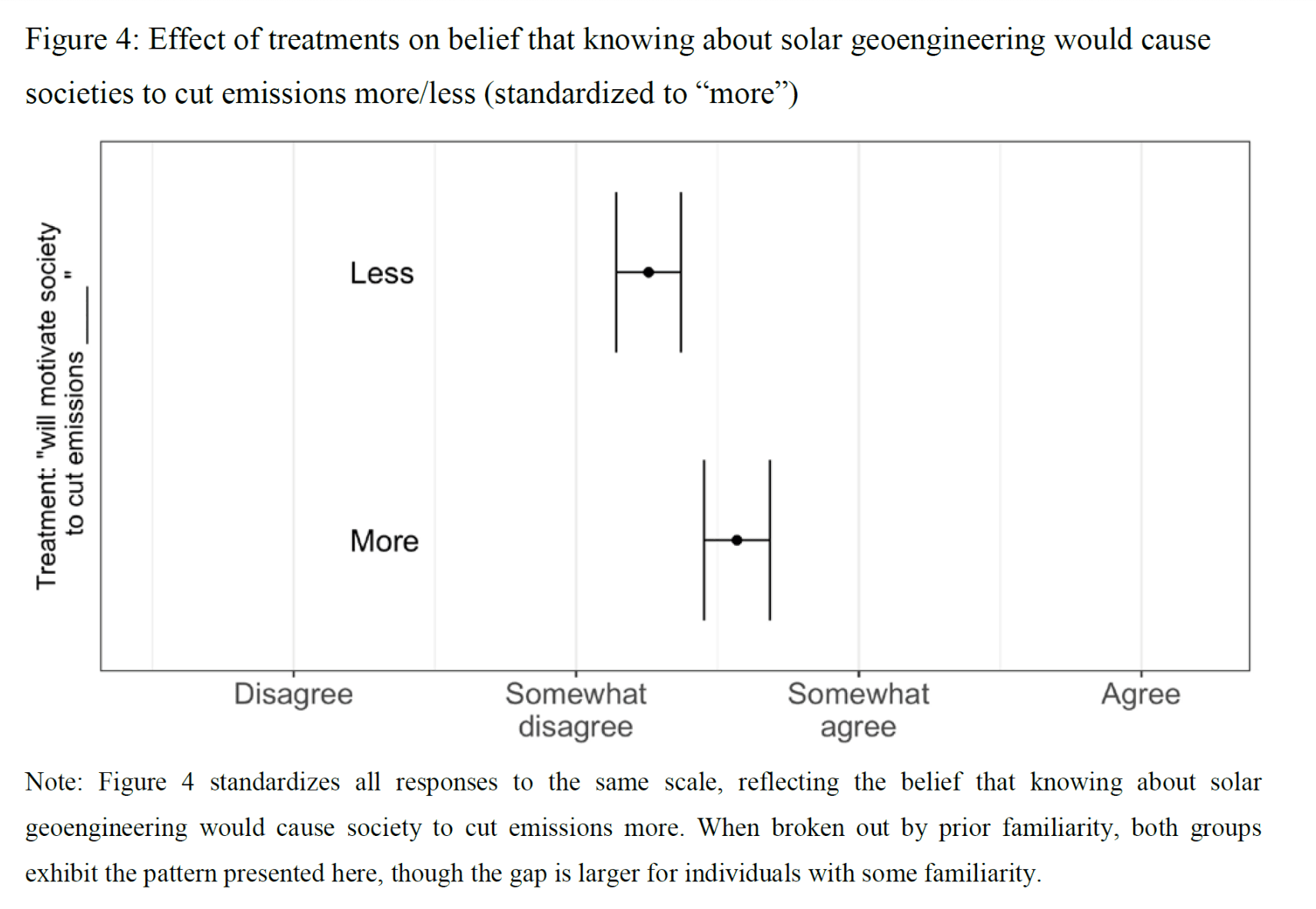Fast, cheap, and imperfect? US public opinion about solar geoengineering
by Aseem Mahajan, Dustin Tingley, and Gernot Wagner

Abstract:
Solar geoengineering, which seeks to cool the planet by reflecting a small fraction of sunlight back into space, has drawn the attention of scientists and policymakers as climate change remains unabated. Unlike mitigation, solar geoengineering could quickly and cheaply lower global temperatures. It is also imperfect. Its environmental impacts remain unpredictable, and its low cost and immediate effects may result in “moral hazard,” potentially crowding out costly mitigation efforts. There is little understanding about how the public will respond to such tradeoffs. To address this, a 1,000-subject nationally representative poll focused on solar geoengineering was conducted as part of the Cooperative Congressional Election Study (CCES) of the US electorate in October-November 2016. The importance that individuals place on solar geoengineering’s speed and cost predicts their support for it, but there is little to no relationship between their concerns about its shortcomings and support for its research and use. Acquiescence bias appears to be an important factor for attitudes around solar geoengineering and moral hazard.
Full text: “Fast, cheap, and imperfect? U.S. public opinion about solar geoengineering” (working paper version: 16 May 2018; online supplemental material; published version)

